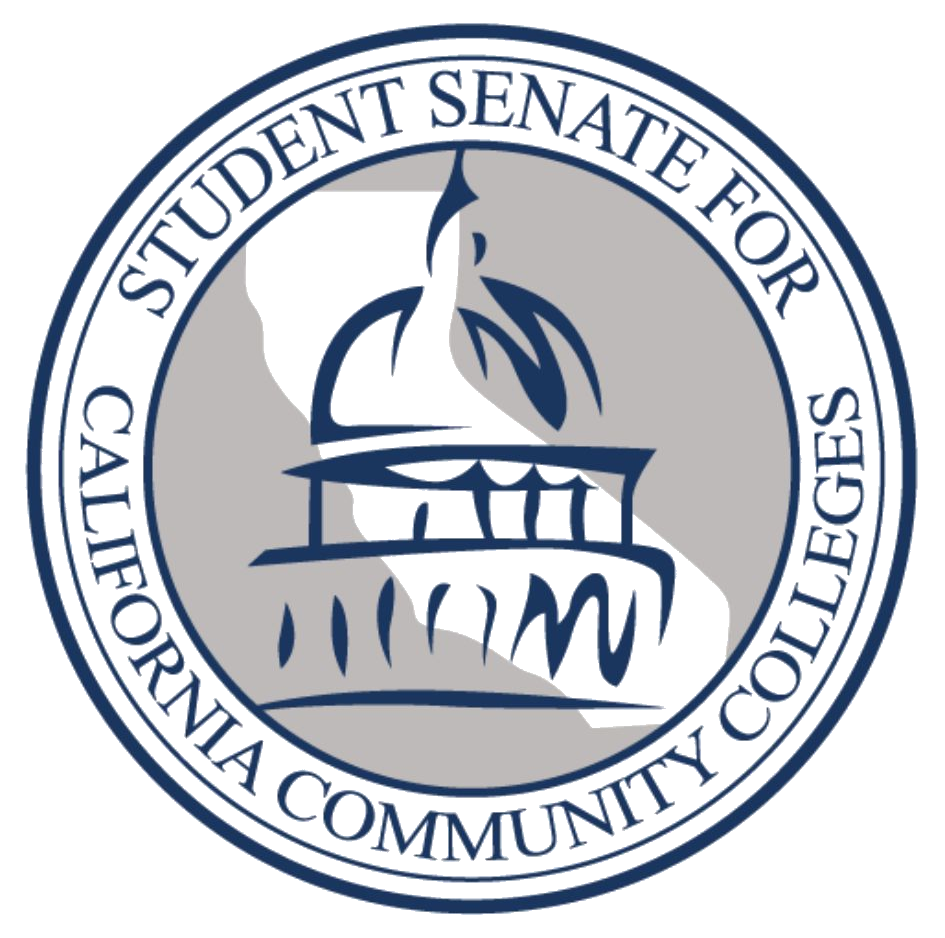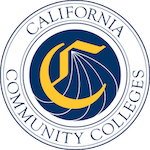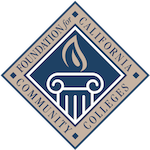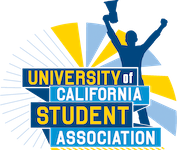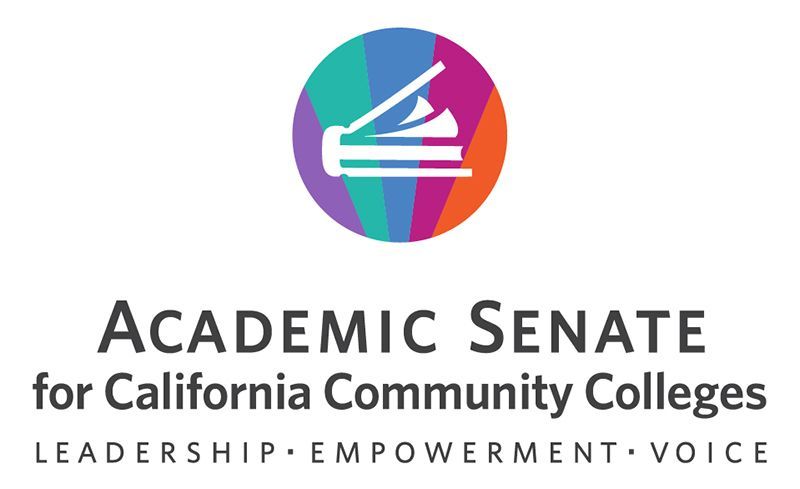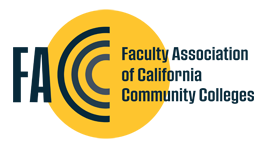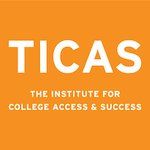Every academic year, the Student Senate for California Community Colleges (SSCCC) undertakes the responsibility of selecting California Community College (CCC) students to act as representatives on systemwide participatory governance committees. These committees are designed to formulate policies, implement effective practices, and allocate resources to address various issues affecting the 116 CCC campuses. The following is a list of the present participatory governance groups within California community colleges, along with their respective descriptions. We highly encourage students interested in policy formation to join on of these governance groups.
-
ASCCC Educational Policies Committee
The Educational Policies Committee studies educational issues of concern to the Academic Senate and is the standing committee that recommends educational policies to the Executive Committee. The Committee provides a forum for high-level discussion and development of Academic Senate Policy, including its effect on faculty and students. The discussions include the viewpoint of students, CIOs and union representatives. The Educational Policies Committee researches issues as required, and writes background and/or position papers where appropriate. The Committee may pass general recommendations to other Senate committees, or work with them on more detailed implementation or technical issues. New or revised educational policies of the Academic Senate pass through the Educational Policies Committee. These may include policies to be implemented either locally or at the state level, suggested positions on proposed policies or changes in existing policies, and responses to assignments given by the President or Executive Committee.
-
Assessment Committee
This committee reviews and makes recommendations concerning all assessment instruments used by districts and colleges referencing equitable placement (AB705).
-
ASSIST Policy Advisory Committee
ASSIST facilitates the transfer of CCC Students to CSU and UC by providing official articulation information. This committee would advise the ASSIST Board on policy issues.
-
Baccalaureate Degree Program Workgroup
The Chancellor's Office established a two-year Baccalaureate Degree Program Workgroup to discuss and provide recommendations for implementing the expanded requirements of AB927.
-
The Black and African American Advisory Panel
Advise on issues related to Black and African American student success, I CAN campaign, and Chancellor's Office efforts (outreach, communications, and marketing).
-
A task force to work collaboratively across the California Community Colleges and its key stakeholders to develop an implementation plan for fulfilling the AB 1111 mandate. Information about AB1111 (Berman) can be found at the link above.
-
CVC/Online Education initiative (CVC/OEI) Advisory Committee
The Online Education Initiative (OEI) is a collaborative effort among California Community Colleges (CCCs) to ensure that significantly more students are able to complete their educational goals by increasing both access to and success in high-quality online courses. The OEI is composed of high-quality online courses, resources for online students, and technology resources. The OEI Steering Committee is a Chancellor’s Office advisory committee body to the OEI management team, that provides guidance and recommendations on OEI policies and procedures to the OEI management team
-
Distance Education and Educational Technology Advisory Committee (DEETAC)
This committee is responsible for providing input into the policy issues associated with distance education and educational technology.
-
Economic and Workforce Development Advisory Committee
"Established by the Chancellor’s Office Board of Governors per education code 88610 (b), the purpose of the Economic and Workforce Development Advisory Committee is to advise on overall program development and recommend on resource deployment and strategies for regional coordination, in
support of achieving the aspirational and ambitious goals of the California Community College System’s Vision for Success, as well as the work of the Workforce and Economic Development Division in serving our communities and students." -
Financial Aid Regional Representatives (FARR)
FARR includes one representative from each CC region as well as the executive officers from the California Community College Student Financial Aid Administrators Association (CCCSFAAA). These persons meet with Chancellor's Office financial aid staff to discuss current financial aid issues, often times discussing pending legislation, state and federal, as well as current system issues like homelessness, basic needs, and immigration issues.
-
Foster and Kinship Care Education (FKCE) Advisory Committee
The Chancellor’s Office leverages the recommendations made by the FKCE committee to update its existing policies and guidelines. Funding decisions are ultimately the responsibility of the Chancellor's Office and feedback from group members provides important information about the population being served, the dynamics of program administration at the college level, and the impact of the child welfare system on the program. This group provides the Chancellor's Office access to critical information needed for making informed decisions about how to allocate program funds.
-
Library and Learning Resources Program Advisory Committee (LLRPAC)
The California Community College Library and Learning Resources Program in conjunction with the Chancellor’s Office actively support learning and enhanced educational success among students of the California Community Colleges. At both the local and system level library and learning resources personnel work in concert with other faculty, administrators, staff, and students to expand information literacy, to assist in the delivery of instruction, to provide tutoring and learning assistance services, and to continuously strengthen quality programs in support of the teaching and learning process
-
Use this application to share with us the committees you are interested in serving on. Completing the application does not guarantee that you will be appointed but instead tells us that you are interested in the committee or the topic. As a position opens, we will reach out to you to see if you are still interested and available to serve.
-
This is the process that the SSCCC will use to make appointments to participatory governance groups.
-
The information in this orientation packet provides advice, information, and requirements necessary to facilitate participation in participatory governance committees.
-
This PowerPoint provides information for those serving on the state and local participatory governance groups. Members of local student body associations can use this PowerPoint to facilitate participation on local governance groups.
-
This form is used by students appointed by the SSCCC to serve on external committees and who are not on the SSCCC Board of Directors. Appointees will not be paid a stipend unless a report is submitted via this form.
